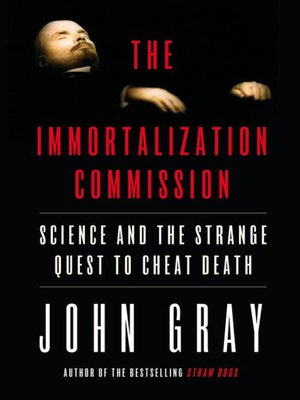
Sign up to save your library
With an OverDrive account, you can save your favorite libraries for at-a-glance information about availability. Find out more about OverDrive accounts.
Find this title in Libby, the library reading app by OverDrive.



Search for a digital library with this title
Title found at these libraries:
| Library Name | Distance |
|---|---|
| Loading... |
A great philosopher will change the way you think about your life.
For most of human history, religion provided a clear explanation of life and death. But in the late 19th and early 20th centuries new ideas — from psychiatry to evolution to Communist — seemed to suggest that our fate was now in our own hands. We would ourselves become God.
This is the theme of a remarkable new book by one of the world's greatest lving philosophers. It is a brilliant and frightening look at the problems and opportunities of a world coming to grips with humankind's now solitary, unaided place in the universe. Gray takes two major examples: the belief that the science-backed Communism of the new USSR could reshape the planet, and the belief among a group of Edwardian intellectuals — popularized through mediums and automatic writing — that there was a non-religious form of life after death.
Gray presents an extraordinary cast of philosophers, journalists, politicians, charlatans and mass murderers, all of whom felt driven by a specifically scientific and modern world view. He raises a host of fascinating questions about what it means to be human. The implications of Gray's book will haunt its readers for the rest of their lives.
For most of human history, religion provided a clear explanation of life and death. But in the late 19th and early 20th centuries new ideas — from psychiatry to evolution to Communist — seemed to suggest that our fate was now in our own hands. We would ourselves become God.
This is the theme of a remarkable new book by one of the world's greatest lving philosophers. It is a brilliant and frightening look at the problems and opportunities of a world coming to grips with humankind's now solitary, unaided place in the universe. Gray takes two major examples: the belief that the science-backed Communism of the new USSR could reshape the planet, and the belief among a group of Edwardian intellectuals — popularized through mediums and automatic writing — that there was a non-religious form of life after death.
Gray presents an extraordinary cast of philosophers, journalists, politicians, charlatans and mass murderers, all of whom felt driven by a specifically scientific and modern world view. He raises a host of fascinating questions about what it means to be human. The implications of Gray's book will haunt its readers for the rest of their lives.







